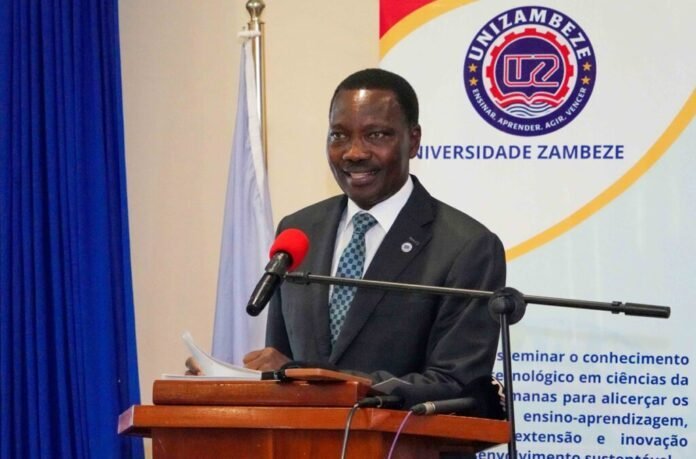“Without financial inclusion, it will be difficult to achieve equitable, sustainable and inclusive development,” said the Governor of the Bank of Mozambique, Rogério Zandamela, while speaking on the “Importance of Financial Inclusion in Boosting Economic Development”, at the opening of the academic year at Unizambeze University, in the city of Beira, Sofala province.
For the Governor, without financial inclusion there will be “no development that serves the interests and needs of the most disadvantaged in our society, which can foster serious social inequalities that can lead to social upheaval”.
In his dissertation, Rogério Zandamela highlighted the role of financial inclusion in boosting economic development. He considered that in the Mozambican context, the issue is of great importance because of its link to the process of economic development, “mainly because the country has high levels of poverty”.
The Governor’s conviction is that Mozambique’s socio-economic deficiencies can only be overcome with the great contribution of financial inclusion, where the less privileged population has increasing access to and use of financial products and services.
In these terms, says Rogério Zandamela, “the role of financial inclusion is that of a key facilitator in promoting economic growth and reducing inequalities and poverty, because with financial inclusion, families and companies have access to formal financial services, and with this several windows of opportunity open up and a cycle of countless benefits for society as a whole is generated”
“In fact, international experiences reinforce the dynamic role of financial inclusion in economic growth and development.” He said
The Governor said that as a result of a series of reforms aimed at promoting financial inclusion, many of them implemented in the context of the National Financial Inclusion Strategy, which was in force until 2022, the levels of financial inclusion in the country are improving.
Today, every district in Mozambique has at least one point of access to financial services. A third of the population has access to banking services, and 93% of the population has access to the services of electronic money institutions.
Throughout the country, there are more than 90,000 e-money accounts for every 100,000 adults, and more than 1,250 e-money agents are in operation for every 100,000 adults.




